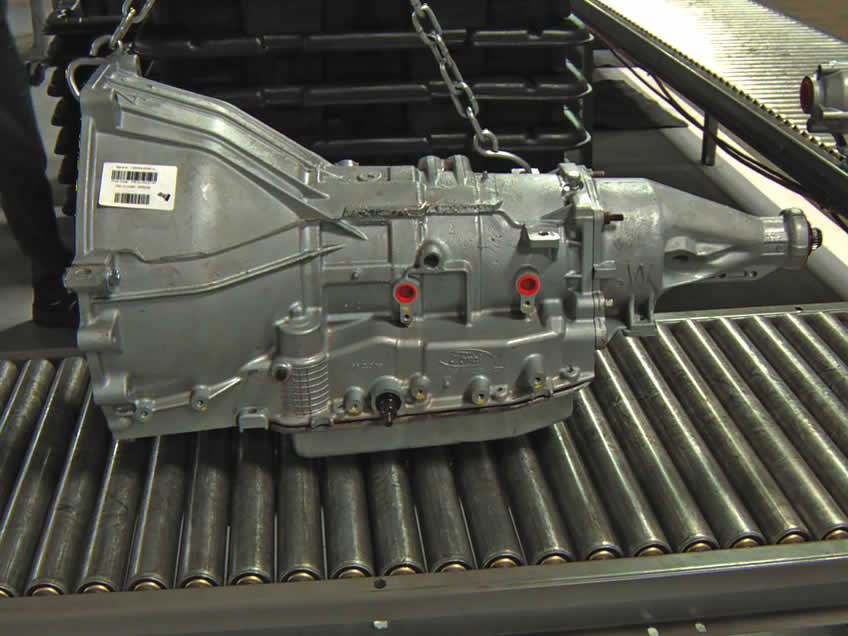What Is a Transmission and Why Is It Important?
Simply put, a vehicle’s transmission is responsible for moving power from the engine to the wheels. The transmission enables the gear ratio between the drive wheels and engine to adjust as the car reduces speed or accelerates. The actual process of a transmission varies based on its type.
When a vehicle comes to a standstill, the transmission does the work of disconnecting the engine from the drive wheel. This enables the vehicle to stay idle when the wheels are not in motion. A car’s transmission allows it to accelerate from an idling state quickly. A transmission also helps reduce wear and tear on the engine by slowing the engine’s RPMs down while allowing the vehicle to travel at a consistent or increased speed.
Top 4 Reasons for Transmission Failure
Here are some of the main reasons why transmission failure occurs:
1. Low transmission fluid
Low levels of transmission fluid can result in serious transmission issues, such as overheating (a real killer of transmissions), trouble shifting gears, delayed gear engagement, and gear slippage. A leak can result from faulty seals or drivetrain.
2. Clogged transmission filter
Transmission issues can also result from a clogged transmission filter. This will result in a hindrance to the flow of (automatic) transmission fluid (ATF). This will result in grinding gears, delayed response from the transmission, or gear slippage. Following the factory recommended schedule for servicing your transmission can help prevent this issue.
3. Torque converter issues
Torque converters sometimes have problems such as damaged needle bearings. This can result in significant transmission damage. You will be able to pick up strange sounds coming from your transmission, such as a grinding or brushing sound.
4. Solenoid issues
The solenoid is responsible for controlling the flow of fluid throughout the transmission. Low fluid levels and other electronic issues can be the culprit behind solenoid challenges. If a vehicle’s transmission is slipping without any signs of leaks, have the solenoid inspected.
Warning Signs of Transmission Failure
These are some of the top warning symptoms signs of failing transmission. If caught early, the chances of an expensive repair decrease significantly.
1. Transmission Warning Light or Check Engine Light
A fundamental sign of transmission trouble is a transmission warning light or a check engine light. This does not necessarily mean that something is seriously wrong with the transmission; however, you should get your transmission and engine checked if you see this.
2. Burning smell
A burning smell coming from a vehicle is never a good sign. An overheating transmission or burning transmission fluid is often the source of this burning smell. When this is discovered, the vehicle must be immediately inspected to avoid further damage.
3. Leaking transmission fluid
One of the most obvious signs of transmission failure is leaking transmission fluid. This will manifest as a sweet-smelling fluid underneath a vehicle while parked. In the event of leaking transmission fluid, contact a mechanic for an assessment.
4. Slipping gears
This sign should not be taken lightly as it can be highly dangerous while driving. If a car slips in and out of gear while a vehicle is in motion, it should be assessed by a professional auto repair mechanic immediately.
Tips on How to Avoid Transmission Failure
Transmission failure can be a massive headache, financially and otherwise. Routine maintenance is an easy and proven way to extend the life of your transmission and also helps prevent unexpected and pricey repairs.
Paying close attention to how a vehicle sounds and handles is a critical component of preventing transmission failure. If the signs mentioned above are noticed early, there is a good chance that the transmission will not fail.
Finally, a driver should practice mindful driving habits that do not put undue stress on the transmission. Bad habits such as parking without the handbrake, changing gears incorrectly, and shifting an automatic transmission before the car comes to a complete stop can cause your transmission to wear out prematurely.










